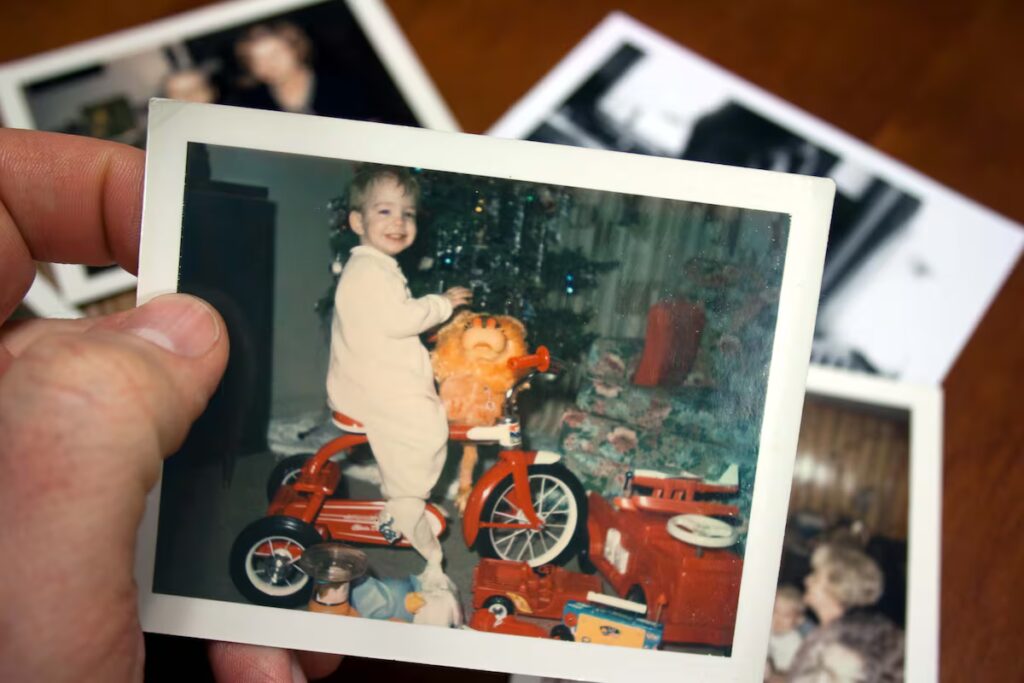
After 10 years as a father writing here about parenting, I think I’ve spent a few hours reflecting on how we adults now handle children. Many times I end up comparing what my children experience with the childhood I had in the 1980s, now immersed in a very benevolent filter of nostalgia. And I wonder: are children today too lucky because they have everything easy, fast and unlimited? Or, ultimately, did things go better for us, because we grew up practicing patience and valuing everything we achieved much more? There is no good answer, but I present a comparison so you can judge for yourself.
I’ll start with what worries privileged children in recent decades: watching TV. We had cartoons set aside for a while after class and on weekend mornings. Following a series from start to finish, with constant programming changes, was a Herculean task, no matter how much I consulted the magazine TP (I feel old remembering the Teleprogramme). For example, I was not traumatized by the death of David the gnomeor because I’ve never seen the episode. It therefore fascinates me that my children have at their fingertips (and on my credit card for subscriptions, of course) a very high percentage of all the content for children and teenagers from the last half century, perpetually within their reach (unless the platform treacherously removes it from the menu).
Holidays were in the city, for many weeks, with little glamor and days full of routine and boredom, because traveling by plane cost a fortune, and no one even wanted to see your holiday photo album. Indeed, that was the most feared horror. On the other hand, children today go on international holidays, full of stimuli and photos to share online, as if parents were competing to see who spends the most and receives the most smiles from the children.
To communicate we used the landline, the one that hurt your fingers if you had to dial so many numbers, and you had to pay for every call. The worst thing was not knowing who would answer on the other end and having to talk to several familiar switchboards until your friend or family member called. Explain this to a generation that fears calls and can contact almost anyone, at any time and at any distance, at flat and ridiculous rates. Dialing the numbers anyway meant that we still knew those landlines by heart, but today in an emergency without ours smartphones perhaps we wouldn’t be able to remember five current contacts. And I like to think that no matter how tired we are of being parents, we still have a pretty useful ability to store and retain data.
As for the diet we monitor so much now with our children, we grew up without much nutritional awareness, snacking boilcaosbread with sugar, triangles of nocilla bread or pâté, normally prepared with traditional oven-baked ingredients. Our children may grow up with greater nutritional clarity, knowing how to read labels and reveal the secrets hidden in the dark side of ultra-processed foods, but before they turn to kombucha and avocados, they have so many supplies on hand that it will be harder for them to escape the ever-growing global obesity pandemic.
The biggest generational change, perhaps, concerns the way parenting is experienced. We grew up as an appendage of our parents, an adult-centered childhood that experts would call, where we obeyed the rules without complaining too much. Without needing a kick, we had a certain respect for the adults in our lives, be they parents, grandparents, teachers or school janitor. Our children, on the other hand, are the center of everything, we value their emotions in a respectful way so that they do not have traumas and in the end they grow up in total freedom, we take them into consideration for plans, timetables, menus… so that they do not get bored or too frustrated.
Plus, we’re at your service almost like butlers and food delivery people, holding your backpack and snack while you play, in case you need a snack. And we document their existence day by day with hundreds of photos and videos that we share with others so they can see how our beautiful human babies grow. Yes, there are still parents who sit on the terrace drinking their beer while occasionally looking towards the park, but, in general, we accompany them more with our presence and our enthusiasm.
And, above all, whether we can reconcile it or not, we are clearly aware that it is as important to provide as it is to be, that it is vital to spend time with our children. If possible, quality time, or at least enough time so that they can complain to us that we ask them too many questions about their feelings and emotions.
The effects of this new education may take a few years to suffer or appreciate as a society. So I don’t know if our childhood was better or not. But what is clear is that we experience it as children and that is why we remember it in a more relaxed way than the education we exercise as parents.





